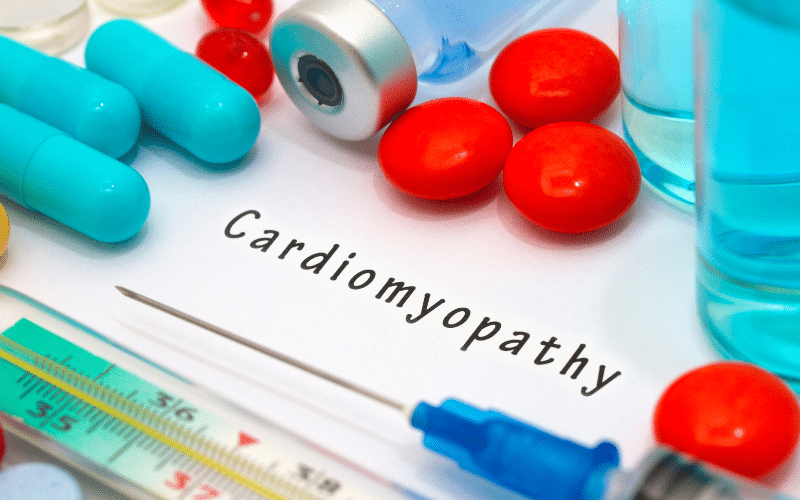Understanding Hypertrophic Cardiomyopathy – Frequently Asked Questions

1. What is the primary cause of Hypertrophic Cardiomyopathy?
Hypertrophic Cardiomyopathy is primarily caused by mutations in the genes that code for proteins in heart muscle cells. These mutations result in abnormal growth or arrangement of these cells, leading to the thickening of the heart muscle, which is characteristic of HCM.
2. Who is most likely to be affected by Hypertrophic Cardiomyopathy?
HCM can affect individuals across all age groups, from infants to the elderly. It often shows up in adolescence or young adulthood, but it can develop at any age. People with a family history of HCM have a higher risk, as the condition is usually inherited.
3. How is Hypertrophic Cardiomyopathy diagnosed?
The diagnosis of HCM typically involves a series of tests, including a physical exam, family history, echocardiogram, electrocardiogram, exercise stress test, and sometimes genetic testing. The diagnosis is primarily based on the thickening of the heart muscle, seen on imaging tests, in the absence of conditions that would otherwise explain the hypertrophy.
4. Can Hypertrophic Cardiomyopathy be cured?
While there’s no cure for HCM, treatments can help manage symptoms and prevent complications. Treatment options include lifestyle changes, medications, non-surgical procedures, and surgery, depending on the severity and progression of the disease.
5. Can individuals with Hypertrophic Cardiomyopathy lead a normal life?
Yes, many individuals with HCM lead a normal life with few to no restrictions. Treatment and regular follow-up care can manage symptoms and reduce the risk of complications. However, certain lifestyle modifications, like avoiding intense physical activities, may be needed.
6. Can exercise cause Hypertrophic Cardiomyopathy?
Exercise does not cause HCM. However, in individuals with HCM, intense physical activity can increase the risk of dangerous heart rhythms and other complications. As a result, doctors often recommend that individuals with HCM avoid most competitive sports.
7. Is Hypertrophic Cardiomyopathy a form of heart disease?
Yes, Hypertrophic Cardiomyopathy is a type of heart disease. It’s a condition in which the heart muscle becomes thickened and stiff, which can impair the heart’s ability to pump blood effectively.
8. Is Hypertrophic Cardiomyopathy the same as heart failure?
While HCM can lead to a type of heart failure, known as heart failure with preserved ejection fraction, they are not the same. Heart failure is a condition where the heart doesn’t pump blood as well as it should, while HCM is a disease of the heart muscle that can lead to heart failure.
9. Can Hypertrophic Cardiomyopathy cause a heart attack?
HCM itself does not cause a heart attack in the traditional sense. However, the condition can cause cardiac events that mimic heart attacks, such as sudden cardiac arrest or angina (chest pain), due to obstruction of blood flow from the heart.
10. Can Hypertrophic Cardiomyopathy go away on its own?
Hypertrophic Cardiomyopathy is a chronic condition that does not go away on its own. However, symptoms and complications can be managed with appropriate treatment and regular medical care. In some cases, the thickening of the heart muscle may decrease with treatment, but the genetic changes that cause HCM remain.
Conclusion: Decoding the Symptoms of Hypertrophic Cardiomyopathy
In conclusion, understanding the symptoms of Hypertrophic Cardiomyopathy (HCM) is crucial in its early detection and effective management. From fatigue to heart murmurs, chest pain to rapid heartbeats, each symptom holds significance in the broader picture of HCM.
Recognition of these symptoms can help ensure timely medical intervention, thus minimizing potential complications. Furthermore, educating oneself about these symptoms can help those living with HCM better manage their condition and continue to lead fulfilling lives.
As HCM can strike anyone, irrespective of age or lifestyle, awareness of these symptoms is important for everyone. Not every case of chest pain or fatigue will lead to a diagnosis of HCM, but understanding when these symptoms could signify something more serious can potentially save lives.
Despite its chronic nature, HCM is a condition that can be managed effectively with the right treatment, regular medical care, and lifestyle modifications. As we deepen our understanding of HCM, we hope to improve the lives of those affected by this condition. To those living with HCM, remember, early detection and prompt intervention can make all the difference. Be aware, stay vigilant, and keep heart-healthy!